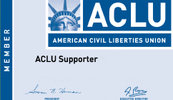Frequently Asked Questions About Arkansas Act 1
FREQUENTLY ASKED
QUESTIONS ABOUT <?XML:NAMESPACE PREFIX = ST1 />
What will this law do?
This law will prevent all children in the state from being adopted or fostered by any adult who is living unmarried with another adult in a sexual relationship. The law applies both to children who are in the care and custody of the Arkansas Department of Human Services, as well as to children who are not in the care of the state.
Doesn’t this law only apply to gay people?
No. The law will apply to both gay couples and straight couples.
What about single people?
Single people will still be allowed to adopt and foster children, so long as the single applicant is not cohabiting with a sexual partner.
What if we want our unmarried relative to adopt our children in the event something happens to us, and those relatives are in a cohabiting relationship? Can they still adopt?
No. While you can still designate them as a guardian for your children, unmarried, cohabiting people cannot legally foster or adopt children, even their own relatives.
Are there any exceptions to the ban?
There are no exceptions to the ban. There is no exception based on the child’s familial or preexisting relationship with an otherwise qualified adult caregiver, even if the child has special needs this caregiver can provide.
How will the law affect adoptions?
Act 1 will apply to both private adoptions and adoptions through the state Department of Human Services. The law will not affect adoptions which have already been become permanent by order of a court.
Are guardianships allowed? And if so, isn’t guardianship as good as fostering or adopting?
Guardianships are allowed but guardianships are always temporary and never permanent. A guardianship is always subject to court supervision and susceptible to being set aside. Child welfare professionals agree that a permanent, stable placement is in the best interests of children.
Will this initiative prevent partners of LGBT people who have legal custody of their biological children from doing a second-parent adoption?
The law would prohibit all future second-parent adoptions if the second parent wishing to adopt is cohabiting in a sexual relationship with the first parent. However, the law probably will not set aside any adoption previously granted.
What happens to children who have already been adopted or fostered by unmarried couples?
Children whose adoptions are final probably will be left in their homes. Children who are being fostered may be removed from their homes.
When does the ban go into effect?
The law goes into effect January 1, 2009.
How many children will this law affect?
There are 3,700 children
currently in the custody of DHS.
There are only roughly 1,100 foster homes, and 960 children are awaiting
adoption on any given day. However,
the law potentially affects every child in the state of
What can I do?
We want to assist families affected by the law. Please share your story with us and encourage others to do the same. We urge anyone who may be immediately harmed to contact us, such as:
- Children who may be forced to leave their current foster family
- Parents who, in the event of their death or for other reasons, want their children to be adopted by an unmarried friend or family member who lives in a relationship with another person
- Relatives or friends of children who are in the system and are being denied access to good homes
- Couples who want to adopt or foster children, including children who they’re related to or have ties with, and cannot due to the law
These are just some of the ways families will be affected, and we want to hear from anyone impacted by the ban in any way immediately. Please email arkansasfamilies@aclu.org or call (212) 519-7835 by December 10, 2008, if possible, tell us how you will be harmed by this law, and let us know how to reach you. Encourage your friends, coworkers, neighbors, church community, family, and others to share their stories with us.

